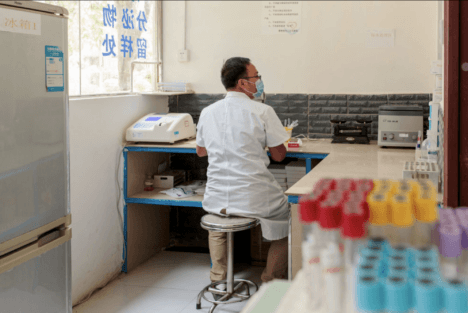December 16, 2020 – In 2010, China announced one of its most ambitious undertakings in public health: It planned to eliminate indigenous cases of malaria within a decade. The disease had a long and lethal history in the country—it’s estimated that, in 1940, China had as many as 30 million cases of malaria resulting in 300,000 deaths—and the parasite that causes it remained widespread in the early 2000s.
But by leveraging technology, implementing robust surveillance strategies, and firmly integrating the malaria control program into the country’s health system, China made quick work of one of the most persistent diseases on Earth. In 2016, the country recorded only three cases of indigenous malaria. In the years since, there hasn’t been a single documented case of malaria that originated within its borders. China is expected to soon be certified by the World Health Organization (WHO) as malaria-free.
It’s a remarkable success story, and may hold valuable lessons for countries still struggling under the burden of this ancient killer.
On December 7 and 8, 2020, Harvard University, China’s National Institute for Parasitic Diseases (NIPD), the Chinese Center for Disease Control and Prevention (China CDC), and WHO hosted a digital symposium titled, “From 30 Million to Zero Malaria Cases in China: Lessons Learned for Malaria-Eliminating Countries in Africa.”
Spanning time zones, borders, languages, and expertise, the event enabled public health officials and scientists in African nations with high burdens of malaria to hear about the challenges their Chinese counterparts encountered when implementing malaria control programs and to share their own research and experiences. The event also included presentations from several Harvard T.H. Chan School of Public Health researchers, who discussed pertinent research, and obstacles to malaria control in low-resource settings.
During opening remarks, Mark Elliott, vice provost for international affairs at Harvard University, noted that the symposium shows the power of collaboration across international borders and was a timely reminder that the biggest challenges in global health “can only be solved together.”
The first day of the event included discussions of global malaria eradication, the role of genetic epidemiology in malaria control programs, and the nuts and bolts of China’s “1-3-7” strategy, which sets strict timelines for diagnosing, reporting, and tracking new malaria cases. During one session, Wafaie Fawzi, Richard Saltonstall Professor of Population Sciences at Harvard Chan School, noted that elements of China’s malaria program could provide a model for fighting other infectious diseases.
The second day of the event included remarks from Harvard Chan School Dean Michelle Williams, who introduced a presentation by Winnie Yip, professor of the practice of global health policy and economics. Yip discussed the importance of strong health systems for controlling malaria. Without a functioning health system, she said, the best diagnostics and the best medicines in the world cannot reach the people who need them most.
Professor Junhu Chen of China’s NIPID and CDC led a presentation on genetic approaches to malaria surveillance and control in which he highlighted how these tools are critical to understanding and tracking the threat of drug-resistant parasites. In a separate presentation, Ning Xiao of China’s NIPD and CDC discussed the opportunities and challenges of genetic surveillance in Africa and emphasized the importance of collaboration and cooperation between China and African nations.
During the symposium, Dyann Wirth, Richard Pearson Strong Professor of Infectious Diseases, led several Q&As with presenters, including one with Pedro Alonso, director of WHO’s global malaria program. Alonso pointed out that, globally, 1.5 billion cases of malaria have been averted since 2000 as well as 7.6 million malaria-related deaths. Still, he said, more than 400,000 people died of malaria last year.
“There’s clearly cause for optimism,” Wirth said. “But it’s also clear that there are many challenges ahead.”
photo: World Health Organization/C. McNab
